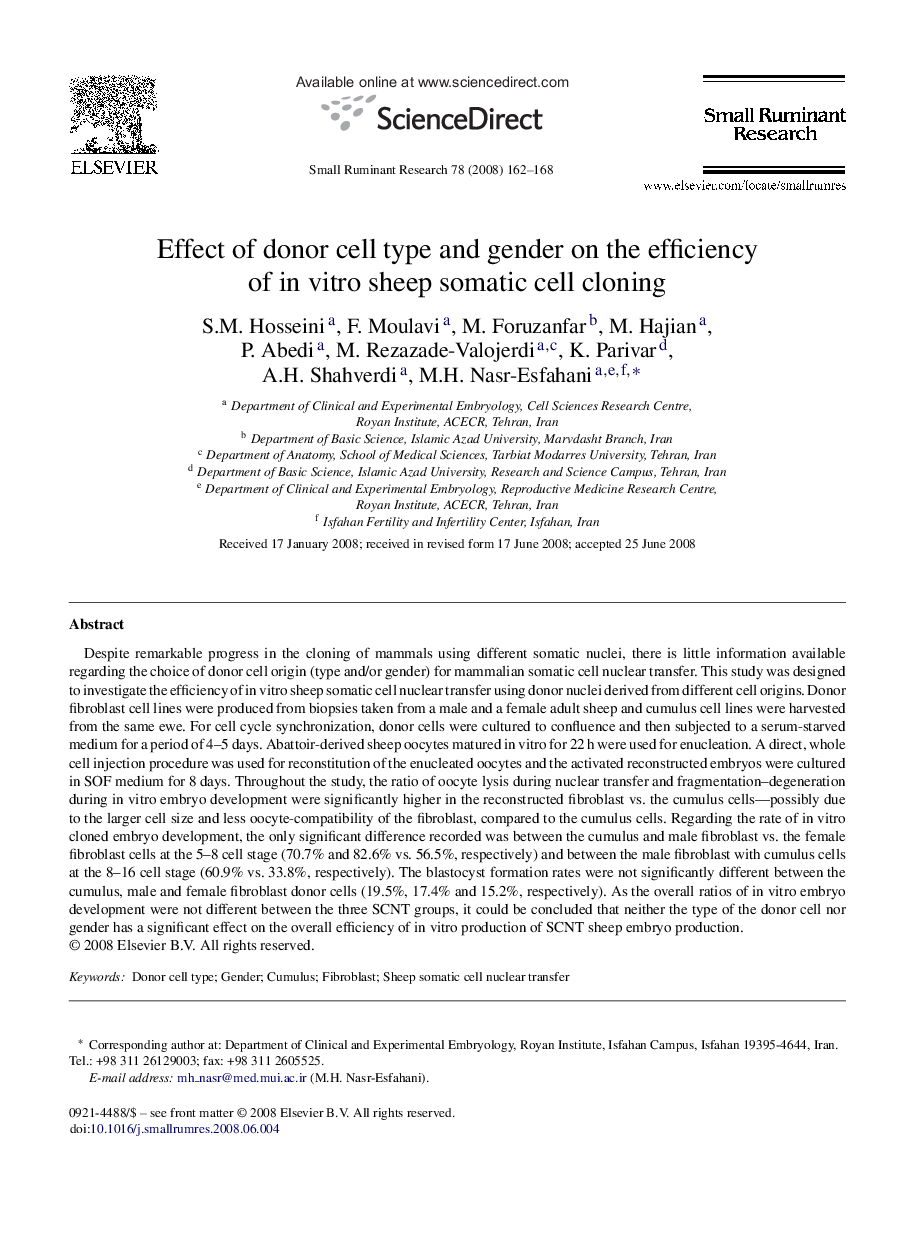| Article ID | Journal | Published Year | Pages | File Type |
|---|---|---|---|---|
| 2457891 | Small Ruminant Research | 2008 | 7 Pages |
Despite remarkable progress in the cloning of mammals using different somatic nuclei, there is little information available regarding the choice of donor cell origin (type and/or gender) for mammalian somatic cell nuclear transfer. This study was designed to investigate the efficiency of in vitro sheep somatic cell nuclear transfer using donor nuclei derived from different cell origins. Donor fibroblast cell lines were produced from biopsies taken from a male and a female adult sheep and cumulus cell lines were harvested from the same ewe. For cell cycle synchronization, donor cells were cultured to confluence and then subjected to a serum-starved medium for a period of 4–5 days. Abattoir-derived sheep oocytes matured in vitro for 22 h were used for enucleation. A direct, whole cell injection procedure was used for reconstitution of the enucleated oocytes and the activated reconstructed embryos were cultured in SOF medium for 8 days. Throughout the study, the ratio of oocyte lysis during nuclear transfer and fragmentation–degeneration during in vitro embryo development were significantly higher in the reconstructed fibroblast vs. the cumulus cells—possibly due to the larger cell size and less oocyte-compatibility of the fibroblast, compared to the cumulus cells. Regarding the rate of in vitro cloned embryo development, the only significant difference recorded was between the cumulus and male fibroblast vs. the female fibroblast cells at the 5–8 cell stage (70.7% and 82.6% vs. 56.5%, respectively) and between the male fibroblast with cumulus cells at the 8–16 cell stage (60.9% vs. 33.8%, respectively). The blastocyst formation rates were not significantly different between the cumulus, male and female fibroblast donor cells (19.5%, 17.4% and 15.2%, respectively). As the overall ratios of in vitro embryo development were not different between the three SCNT groups, it could be concluded that neither the type of the donor cell nor gender has a significant effect on the overall efficiency of in vitro production of SCNT sheep embryo production.
